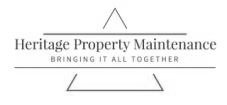Enhancing Health, Safety, and Longevity in Schools, Colleges, and Universities
Introduction
Educational institutions such as schools, colleges, and universities face unique challenges in maintaining clean, safe, and inviting environments for students, staff, and visitors. In a vibrant city like Birmingham, with its diverse and growing student population, the standards for hygiene and maintenance are especially high. One innovative solution that addresses these challenges is the installation of hygienic wall cladding. This article explores the multifaceted benefits of hygienic wall cladding and why it is an increasingly popular choice for Birmingham’s educational facilities.

What is Hygienic Wall Cladding?
Hygienic wall cladding refers to a range of wall covering systems made from materials such as high-quality PVC (polyvinyl chloride), designed specifically to provide easy-to-clean, durable, and impermeable surfaces. Unlike traditional painted walls or tiles, hygienic cladding is engineered to resist moisture, mould, and bacterial growth, making it a superior alternative in environments where cleanliness is paramount.
1. Improved Hygiene and Infection Control
Perhaps the most significant benefit of hygienic wall cladding is its role in enhancing hygiene and infection control. Schools, colleges, and universities are high-traffic environments where germs can spread rapidly. Hygienic cladding creates a seamless and non-porous barrier that prevents bacteria, viruses, and fungi from penetrating the surface. Unlike tiles, which have grout lines that can harbour dirt and pathogens, wall cladding offers a smooth finish that leaves nowhere for germs to hide. This is particularly beneficial in areas such as canteens, washrooms, science laboratories, and sports changing rooms, where the risk of contamination is highest.
2. Ease of Cleaning and Maintenance
Educational facilities must be cleaned regularly to protect the wellbeing of their occupants. Hygienic wall cladding is designed for quick and simple cleaning—often requiring nothing more than a wipe with a damp cloth and mild detergent. The absence of joints and crevices makes the process even more straightforward, reducing the need for harsh chemicals and saving valuable time for cleaning staff. Over time, this ease of maintenance translates to significant cost savings and ensures that the learning environment remains consistently clean and presentable.
3. Enhanced Durability and Longevity
Schools, colleges, and universities in Birmingham experience considerable wear and tear, with hundreds or even thousands of people moving through their corridors and classrooms daily. Hygienic wall cladding is robust and impact-resistant, standing up to knocks, scrapes, and accidental damage that can easily mar painted walls or tiles. Its durability means that it will not chip, peel, or crack easily, ensuring that the institution retains a professional appearance for many years. This longevity also means fewer repairs and replacements, reducing disruption and expense.
4. Compliance with Health and Safety Regulations
Birmingham’s educational institutions are subject to strict health and safety regulations, particularly regarding hygiene in food preparation and healthcare areas. Hygienic wall cladding helps schools and universities meet and exceed these standards. Many cladding systems are tested to meet British and European compliance requirements, including fire safety, food contact safety, and resistance to chemicals. Installing hygienic cladding demonstrates a commitment to regulatory compliance and the highest standards of care for students and staff.
5. Improved Aesthetics and Customisation
While functionality is essential, aesthetics also matter in educational environments. Modern hygienic wall cladding is available in a wide array of colours, finishes, and even custom graphics, allowing institutions to create bright, welcoming, and inspirational spaces. Cladding can be used to reinforce school branding, mark different zones, or introduce wayfinding elements. This flexibility helps create positive and engaging learning environments that enhance student motivation and wellbeing.
6. Cost-Effectiveness Over Time
Though the initial investment in hygienic wall cladding may be higher than traditional wall finishes, the long-term savings are substantial. The reduced need for intensive cleaning, painting, and repairs means that maintenance budgets can be stretched further. Institutions also benefit from fewer interruptions caused by ongoing maintenance, which can otherwise disrupt lessons and activities. Over a typical product lifespan, hygienic cladding proves to be a highly cost-effective solution.
7. Promoting Sustainability and Environmental Responsibility
Many modern wall cladding systems are manufactured using environmentally friendly processes and materials. Recyclable PVC cladding, for example, supports sustainability goals while providing the robust performance required in educational settings. By choosing wall cladding that is durable and long-lasting, institutions can reduce waste and minimise their environmental footprint—an increasingly important consideration for Birmingham’s eco-conscious schools and universities.
8. Fast and Disruption-Free Installation
A practical benefit for busy educational institutions is the speed and ease of installing hygienic wall cladding. Many systems can be fitted directly over existing surfaces with minimal preparation, reducing downtime and allowing schools to remain operational during the process. This is especially beneficial during school holidays or between academic terms when building works need to be completed swiftly and efficiently.
9. Supporting Inclusive and Accessible Environments
Hygienic wall cladding can contribute to creating more inclusive environments by allowing for features such as antimicrobial surfaces and easy-to-clean finishes that support students with allergies or compromised immune systems. Customisable colours and textures can also aid wayfinding for students with visual impairments, helping all learners feel safe and supported within their educational setting.
10. Meeting the Unique Needs of Birmingham’s Educational Sector
Birmingham is home to a diverse range of educational institutions, each with its unique challenges and requirements. Whether it’s a historic university building requiring sensitive refurbishment or a newly built academy looking for innovative solutions, hygienic wall cladding can be tailored to suit individual needs. Local suppliers and installers often have experience working within the city’s educational sector and can offer expert advice on suitable products and installation methods.
Conclusion
For schools, colleges, and universities in Birmingham, maintaining high standards of hygiene, safety, and aesthetics is essential for fostering a positive learning environment. Hygienic wall cladding delivers a broad spectrum of benefits, from improving infection control and reducing maintenance costs to enhancing durability and supporting sustainability goals. As Birmingham’s educational institutions strive to provide the best possible environments for their students and staff, investing in hygienic wall cladding stands out as a smart, future-proof solution.


